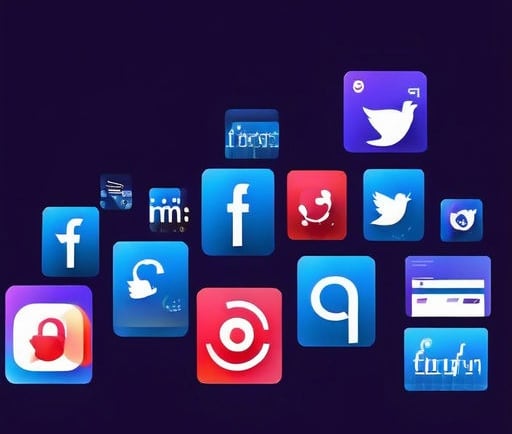The Evolution of Social Media: What’s Next?
The social landscape has undergone a revolution thanks to social media. From the pioneering days of MySpace to the current reign of Facebook, Instagram, and TikTok, these platforms have continuously adapted to our ever-shifting desires for connection and communication. But what lies ahead for this ever-evolving digital ecosystem?
ENTERTAINMENT


This article delves into the fascinating trajectory of social media and explores the exciting possibilities that await these powerful platforms.
The Early Days of Social Media
In the early 2000s, platforms like Friendster and MySpace paved the way for a new era of digital interaction. These early social networks allowed users to create profiles, connect with friends, and share content. MySpace, in particular, became a cultural phenomenon, offering customizable profiles and a platform for musicians to reach new audiences.
The Rise of Facebook and Twitter
The launch of Facebook in 2004 marked a significant turning point in the evolution of social media. Facebook introduced a more refined and user-friendly interface, quickly becoming the go-to platform for social networking. Twitter followed in 2006, offering a unique microblogging service that limited posts to 140 characters, fostering a new form of real-time communication.
The Visual Era: Instagram and Snapchat
The advent of smartphones brought about the rise of visually-oriented platforms like Instagram and Snapchat. Launched in 2010, Instagram capitalized on the growing trend of photo sharing, while Snapchat introduced ephemeral content with its disappearing messages. These platforms emphasized visual storytelling, transforming how users interact and share their lives online.
The Dominance of Video: YouTube and TikTok
Video content has become a cornerstone of social media, with YouTube leading the charge since its inception in 2005. YouTube provided a platform for user-generated video content, from tutorials to entertainment. TikTok, launched in 2016, took the world by storm with its short-form videos and algorithm-driven content discovery, appealing to a younger demographic and setting new trends in content creation.
Emerging Trends in Social Media
As social media continues to evolve, several emerging trends are shaping its future:
1. Augmented Reality (AR) and Virtual Reality (VR): Platforms like Snapchat and Instagram have already integrated AR features with filters and lenses. In the future, we can expect more immersive experiences as AR and VR technologies advance, allowing users to interact in virtual spaces.
2. Social Commerce: Social media platforms are increasingly becoming shopping destinations. Features like Instagram Shopping and Facebook Marketplace enable users to discover and purchase products directly through the apps, blending social interaction with e-commerce.
3. Decentralized Social Networks: With growing concerns over privacy and data security, decentralized social networks like Mastodon and Minds are gaining attention. These platforms prioritize user control and privacy, offering an alternative to traditional centralized networks.
4. AI and Personalization: Artificial intelligence is enhancing the user experience by providing personalized content recommendations. Social media algorithms are becoming more sophisticated, tailoring feeds to individual preferences and behaviors.
5. Niche Communities: While mainstream platforms dominate, there is a growing trend towards niche social networks catering to specific interests and communities. These platforms offer more focused content and foster deeper connections among like-minded users.
The Future of Social Media
Looking ahead, the future of social media is poised to be even more dynamic and transformative. Here are some potential developments:
1. Enhanced User Privacy and Data Security: In response to increasing scrutiny, social media platforms will likely implement more robust privacy features and transparent data practices to regain user trust.
2. Integration of AI and Machine Learning: AI will play a more significant role in content moderation, personalization, and even creating content. Machine learning algorithms will help identify trends and user preferences with greater accuracy.
3. Evolution of Content Formats: As technology advances, we may see new content formats that combine elements of text, image, video, and interactive media, offering richer and more engaging user experiences.
4. Greater Focus on Mental Health: Social media companies will likely invest in features and initiatives that promote mental well-being, addressing issues like cyberbullying and the impact of social media on mental health.
5. Expansion into New Markets: As internet access expands globally, social media platforms will continue to grow their user bases in emerging markets, adapting to local cultures and preferences.
Social media's evolution, marked by constant innovation and adaptation from MySpace to TikTok, continues to reshape communication and connection. Emerging technologies like virtual reality promise to further transform these digital landscapes, offering exciting possibilities for users and businesses alike. The next phase of social media evolution will undoubtedly bring new challenges and opportunities, shaping the way we interact in the digital age.